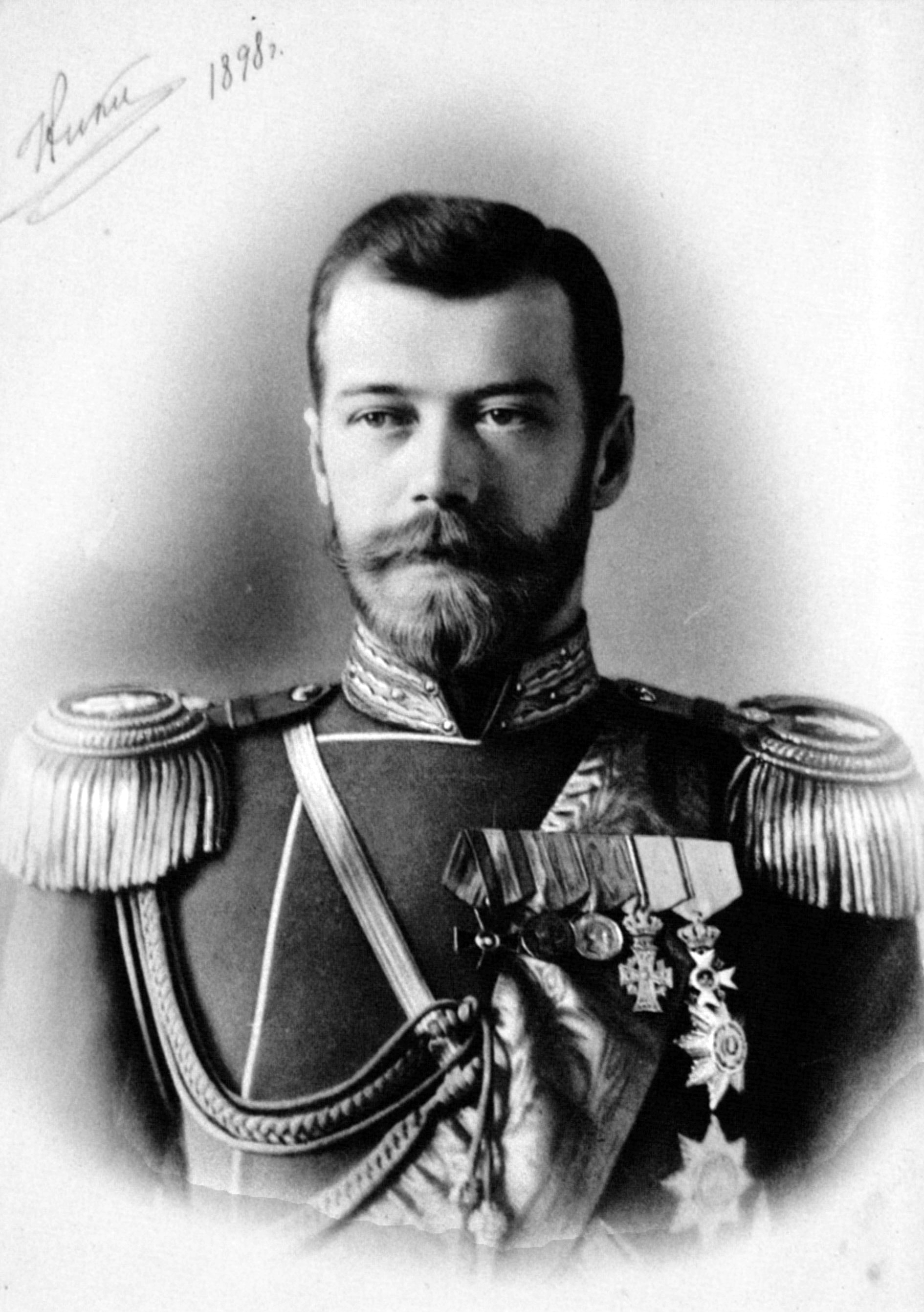
Tsar Nicholas II
Tsar Nicholas II ruled during time of great conflict and upheaval, ultimately concluding not only with the end of the Romanov dynasty, but also the end of tsarist rule over Russia. During the 1917 February revolution in Petrograd, the people protested the food shortage as a result of war, directing their anger towards the tsar and his regime. After power struggles, Nicholas lost the people’s trust and patience. After the people gained the support of the royal army, Nicholas II was forced to abdicate the throne to his brother, Grand Duke Mikhail. In Nicholas’s declaration of abdication he stated that he did not want to “separate [myself] from [my] beloved son” ((The Times, Abdication of Nicholas II, 1917)) which may be true, but Nicholas also was protecting Alexander by keeping his identity as a hemophiliac secret by refusing to abdicate the throne to him. In Nicholas’s written abdication he believes that the war must come to an end “at all costs” ((The Times, Abdication of Nicholas II, 1917)), one of which was ending the centuries long reign of his Romanov legacy.
Even as Nicholas gave up power he still managed to make a request of his citizens to “obey[ing] the tsar at the painful moment of national trial” ((The Times, Abdication of Nicholas II, 1917)). Directly after inspiring this final moment of trust, Nicholas goes on to say “May God help Russia” ((The Times, Abdication of Nicholas II, 1917)) , which appears to give up responsibility and convey that fate is taking the lead of the situation, a contradiction to his previous statement. As power is transferred to Grand Duke Michael, he soon passes it along to the Duma and the First Provisional Government in the hopes of creating a “more stable executive power” ((Izvestiia, The First Provisional Government, 1917)). The Provisional Government, consisted of Kadets and revolutionists, is led by Prince L’vov. In such a tumultuous time the Provisional Government attempted to enact many principles, some of which were too abrupt of an ideological shift to be truly successful. While the Provisional government was one step in a new political order, a lack of cohesion and realistic principles created an environment which was not se tup for success, leaving the Russian people without a strong government once again and vulnerable to the next shift of power.
